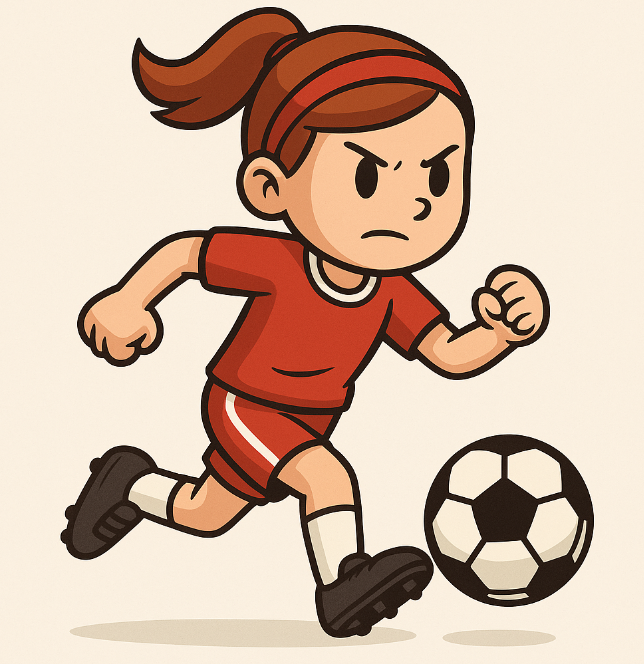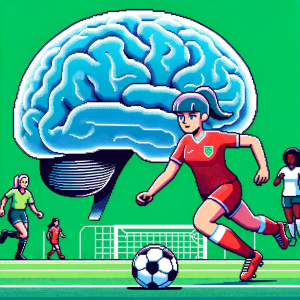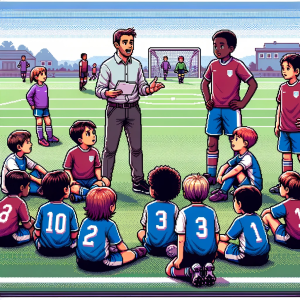
Unlocking Willpower Through Soccer
If you’ve ever coached a player who turns up to every practice, gives it their all, and fights back after a tough loss, you’ve seen willpower in action. But how do we actually help players develop that grit? A new study from researchers in China has the answer: campus football (soccer) activities significantly boost adolescent psychological qualities, especially willpower. And they do it through a powerful chain of development that any coach or club director can use.
Let’s break it down.
The Four Building Blocks of Mental Strength
The study followed 68 high schoolers through an 8-week soccer program and surveyed another 431 teens for broader insights. The findings? Four key traits improved with consistent soccer involvement:
- Sports Behavior: How often and how intentionally students engaged in soccer.
- Sports Cognitive Level: Their ability to process, understand, and apply sports-related knowledge.
- Sports Self-Confidence: How confident they felt about their skills, decisions, and ability to bounce back.
- Willpower Qualities: Grit, perseverance, independence, and emotional control under pressure.
Most importantly, the researchers found that soccer directly improved willpower—and even more so when it first built cognition and confidence.
The Chain Reaction: From Kicks to Character
So how does this work in practice? Imagine this chain reaction:
- A player joins regular soccer training and starts developing better habits: showing up, practicing technique, engaging with the team.
- Through drills, games, and real-time decisions, they improve their sports cognition—reading the field, predicting plays, adapting strategies.
- Successes and feedback help them build confidence in their decisions, skills, and role on the team.
- These experiences together form a kind of mental training ground, helping the player build willpower—resilience, focus, and the ability to push through challenges both in games and in life.
This is more than just a feel-good narrative. It’s a validated model supported by statistical analysis and structural equation modeling from the research team.
What Coaches and Clubs Can Do Today
Here’s how you can turn this research into action for your team or club:
1. Make Participation Consistent
- Offer structured programs lasting at least 6–8 weeks.
- Encourage attendance not just for games, but for every session.
2. Design for Cognitive Load
- Use game-based drills that require quick decision-making.
- Vary formations, scenarios, and tempo to challenge mental flexibility.
3. Build Confidence Gradually
- Set achievable stretch goals during practice (e.g., 5 consecutive passes under pressure).
- Celebrate small wins—assist, interception, good positioning—not just goals.
4. Train for Grit, Not Just Goals
- Include moments of intentional adversity: play a man down, set time-limited challenges.
- Debrief after failure: What did we learn? What will we do differently next time?
5. Talk About It
- Incorporate discussions about mindset, recovery from mistakes, and emotional control into your team culture.
- Frame soccer as a tool not just for competition, but for building life skills.
Why This Matters Beyond the Game
This study couldn’t come at a more important time. Adolescents today face mounting pressures—academic stress, social media comparisons, and uncertain futures. Soccer offers more than fitness or fun; it’s a vehicle for mental strength.
By investing in structured, mentally engaging, and emotionally supportive soccer environments, clubs and coaches can nurture players who not only perform better but also cope better with sport, school, and life.
And the best part? These mental skills aren’t just for elite athletes. Every player can benefit.
Your Turn to Kick It Off
We want to hear from you:
- How do you currently help your players build confidence and resilience?
- Have you seen soccer improve your athletes’ focus or decision-making off the field?
- What drills or routines have helped foster mental toughness in your program?
Drop a comment below or tag us on social media using #SoccerAndGrit—we’ll feature your stories in a future post!



